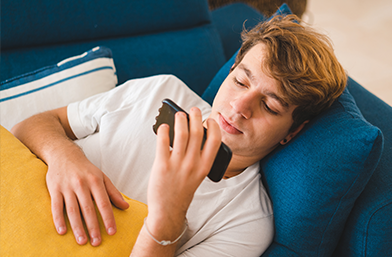None of us could have expected a pandemic virus.
Yes, I know it was inevitable, but it is human nature, ironically, a survival technique, to NOT expect and prepare for global disaster. I have thought, especially during times of work stress, about how lovely it would be to be in isolation for a month or two; time to rediscover the creative hobbies of my teens, time to bond with family beyond the limits of a weekend, time to enjoy the lost art of solitude. Instead, stress and anxiety consume much of our time, and while there are many things that we cannot control during this unprecedented time, some of the following strategies are things we can control, and thus may make this time a little more bearable, and even valuable.

1. Translate
Frame your current circumstance as an opportunity to not only protect yourself, but to adapt, grow and protect others. While practicing gratitude is an extremely simple exercise, it can be powerful in reducing anxiety. Make it a game by trying to see everything (no matter how worrisome or negative) as a positive. Reframing adversities into a positive context has been proven to have immediate physiological benefits in a person’s mental state. Understanding personal strife as part of a communal experience can also reduce its potency of perceived threat.
2. Estimate
Use anchoring to manage anxiety and stop panic attacks. In a time of social panic, it’s key to sort factual truth from sensationalism by using statistics and tangible evidence to ground the mind and manage anxiety. This technique is grounded in science. Using numbers and concrete facts activates the parasympathetic nervous system and calms the emotional centers of the brain that can hijack your thinking.
3. Allocate
Schedule your day to provide predictability and balance to your day’s activities. This strategy is not meant to optimize your productivity. Instead, creating routines is used to treat anxiety, insomnia and stress, acting as a sort of sedative to your brain. When feeling trapped inside by a national emergency such as the coronavirus, a sense of empowerment over routine is critical.
4. Meditate
Practice mindfulness techniques, particularly simple meditation routines, to dramatically reduce stress and anxiety. Researchers at Johns Hopkins recently sifted through 19,000 studies on meditation and found consensus that meditation addresses psychological stress, anxiety, depression, and pain. Integrating just five to ten minutes a day of a regular routine with an app like headspace can be a great tool your life. Guided imagery is another relaxation technique proven by science to improve your health (e.g. lower blood pressure. reduce levels of stress hormone (cortisol), reduce pain). Guided imagery incorporates sensory (e.g. taste, sound, smell, sensation) and visual positive mental images to create a sense of well-being. Think about this technique as “going to your happy place.”
5. Cultivate
Take this opportunity to nurture relationships, develop new skills, rediscover hobbies and institute healthy habits. During this period of social distancing, it can be a terrific opportunity to do those things that you’ve been putting off due to our high-intensity pace of life. Read the books on your bedside table. Take up a musical instrument. Develop an exercise routine. Play board games with your family. Now’s the time to slow down, set personal goals, institute new habits and develop new skills that will last you a lifetime.
In Conclusion
Be sure to contact a mental health professional experienced in treating anxiety disorders if you or a loved one is experiencing pronounced anxiety symptoms such as loss of sleep, loss of appetite, constant worrying or rumination about the future, feelings of panic or shortness of breath, and/or physical symptoms such as stomach pain, headache, or fatigue.
About The Authors
Dr. Dan Villiers is the Founder and Executive Director of the Anxiety institute, a comprehensive outpatient practice specializing in the treatment of anxiety, OCD and trauma. Dr. Dan has been called the “Anxiety Whisperer” for having motivated over 950 treatment avoidant/resistant teenagers to go from house-bound to school-bound through their commitment to intensive treatment.
Alex Merrill is the Founder & Director of Alliance Tutoring, a group of experienced private school educators providing General and Subject-Specific Tutoring, Credit Recovery; Standardized Test Prep; and College Application support to local, domestic, and international students of all ages.
“My personal knowledge and experience of anxiety and fear, as a victim and as a conqueror, has gifted me the valuable asset of emotional intelligence. Knowledge and experience that will give me the empathy to connect with others and the grit to overcome adversity.”


